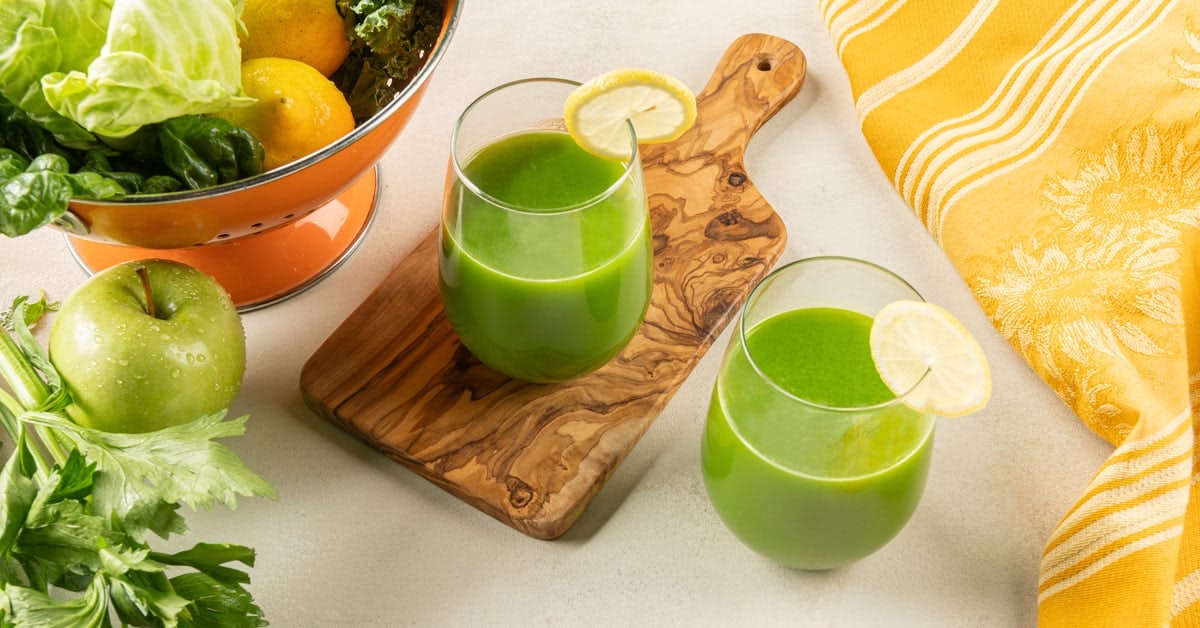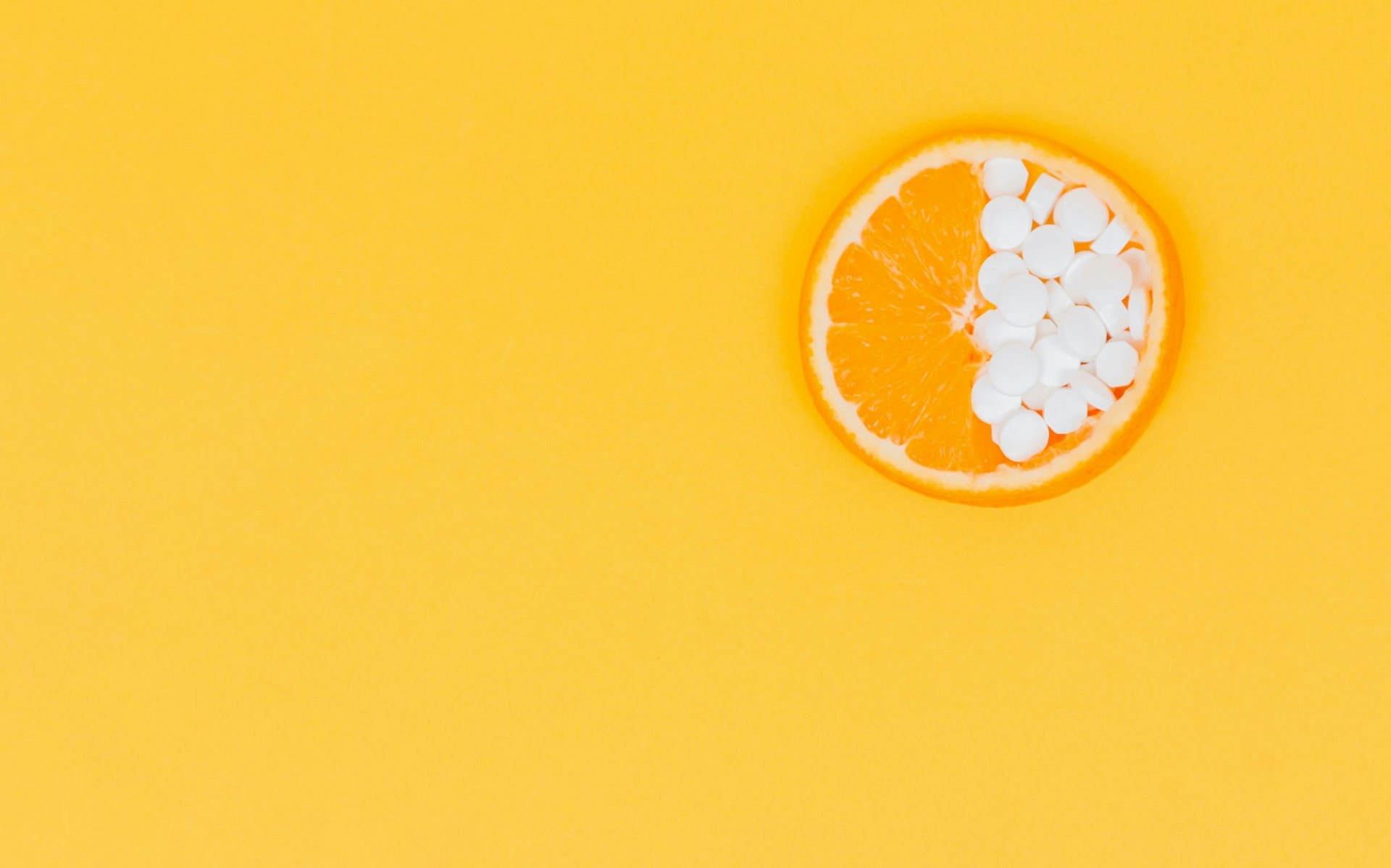
Does Orange Juice Have Vitamin D? How Much?
No, cold-pressed or freshly squeezed orange juice doesn't naturally contain vitamin D. However, many store-bought orange juices are fortified with vitamin D during processing (along with calcium, since both nutrients work together). Despite their good vitamin C content, oranges and orange juice aren't a great source of vitamin D. Vitamin D is most often obtained through exposure to sunlight and certain foods. Fortified orange juice may seem like an easy way to get more vitamin D, but it has it's drawbacks. Store-bought orange juice typically has more added sugars, flavors, and other unwanted additives compared to cold-pressed orange juice. If you are still interested in supplementing your vitamin D intake through orange juice, when choosing orange juice products, make sure they are fortified with vitamin D by checking the label or contacting the manufacturer. What is Vitamin D? A healthy body needs vitamin D. It is an essential vitamin that helps regulate calcium and phosphorus in the body. It also plays a role in maintaining proper bone structure and health. Vitamin D helps the body to absorb calcium, which is needed to make strong bones. Combined with calcium, vitamin D protects you from osteoporosis, which thins and weakens your bones and makes them more prone to breaking. It is a fat-soluble nutrient, which means your body can store vitamin D in fat cells. Sources of Vitamin D Sunlight is a natural source of vitamin D. The only foods that contain significant amounts of vitamin D are fortified orange juice, fortified dairy, eggs, fish, and mushrooms. Fortified orange juice has 15% of the recommended daily value of vitamin D, so this option is not great if you are looking to get your daily recommended value. Due to the standard sedentary and indoor American lifestyle, fortified foods are the main source of vitamin D in the average American diet. If you are vitamin D deficient, it is important to get adequate sunlight, and ask your doctor if supplementing would be a better option rather than consuming extra sugar. Is Sunlight a Good Source of Vitamin D? To answer this question, you must look at all the variables that affect vitamin D production: your skin pigmentation, your general age, your latitude, the time of day you spend outside, and the season. Despite the fact that we can make vitamin D from sunlight, many people don't make enough, especially those living at high latitudes (far north/south), spending plenty of time indoors, or having darker skin. The amount of sunlight needed by those with lighter skin to make enough vitamin D was measured in Valencia, Spain. Researchers took into account how much clothing the participants wore and what time of year it was. Valencia is about the same latitude as Kansas City (MO). It takes about 8 to 10 minutes of sun exposure at noon to make your vitamin D amount in the spring and summer (with the hands, face, neck, and arms exposed). Vitamin D production needs nearly two hours of sun exposure at noon during the winter when only 10 percent of the body is exposed to the sun. Vitamin D Capsules vs. Fortified Orange Juice Studies have determined that Vitamin D2 and vitamin D3 are equally bioavailable in orange juice and capsules. However, many people choose to take vitamin D supplements in the form of capsules to avoid store-brought, processed orange juice and the extra sugar that comes with it. As a general rule, you're better off drinking a glass of cold pressed OJ that is blended with other fruits and veggies to consume less sugar and a greater variety of vitamins and minerals while supplementing with vitamin D.

Does Apple Juice Have Vitamin C? How Much?
The average serving of raw apple juice contains 23 mg of vitamin C, which is around 25% of your daily recommendation. However, the exact amount depends on things what kind of apple was used and how it's processed. How Much Vitamin C does Apple Juice Have? There are 23 milligrams of vitamin C, also known as ascorbic acid, in a cup of raw apple juice. It's recommended that adults get between 75 and 120 milligrams of vitamin C a day, although anyone who smokes or breathes secondhand smoke should consume an additional 35 milligrams. This means you get between 19 to 31 percent of your recommended vitamin C from a cup of raw apple juice However, it's important to remember that high heat exposure and oxidation during processing and storage can reduce vitamin C content. Commercially processed apple juice may not contain the same level of this vitamin as cold-pressed apple juice. In addition, different types of apples and juicing methods can affect vitamin C content. Why is Vitamin C an Important Nutrient? As vitamin C helps make collagen, and it's good for your blood vessels, ligaments, tendons, and skin. Additionally, it boosts your immune system and helps heal wounds. Vitamin C protects your body's cells from toxins like cigarette smoke and exhaust fumes and slows down the aging process. Cold Pressed Apple Juice vs. Raw Apples Drinking apple juice rather than eating apples raw is a popular choice. It's hydrating for the body due to the high water content. If it's made from fresh apples, cold pressed apple juice has the same nutritional value as raw apples, aside from the fiber content. The nutritional value of apple juice is reduced by preservatives in most commercial juices. The best way to get the most nutrition and health benefits from apple juice is to make it at home, and adding it to other nutrient dense fruits and vegetables. Other Benefits of Drinking Apple Juice Apple juice has tons of health benefits. It's packed with vitamins, antioxidants, and minerals that support the cardiovascular system, eyes, and liver. In addition to protecting the brain from free radicals, this juice is also good for your skin. Its anticancer properties are boosted by phytochemicals and antioxidants. It has great cancer prevention properties, but too much can cause gastrointestinal issues, weight gain, tooth decay, and high blood sugar. People who are prone to kidney stones are at an increased risk due to it's oxalate content. As with anything, it should be consumed in moderation. Conclusion In conclusion, the answer to the question “Does Apple Juice Have Vitamin C?” is yes. Apple juice is a good source of vitamin C, especially cold-pressed apple juice as it contains a significant percentage of the recommended daily intake. Therefore, if you are looking for a way to get your daily dose of vitamin C, apple juice is a great option.
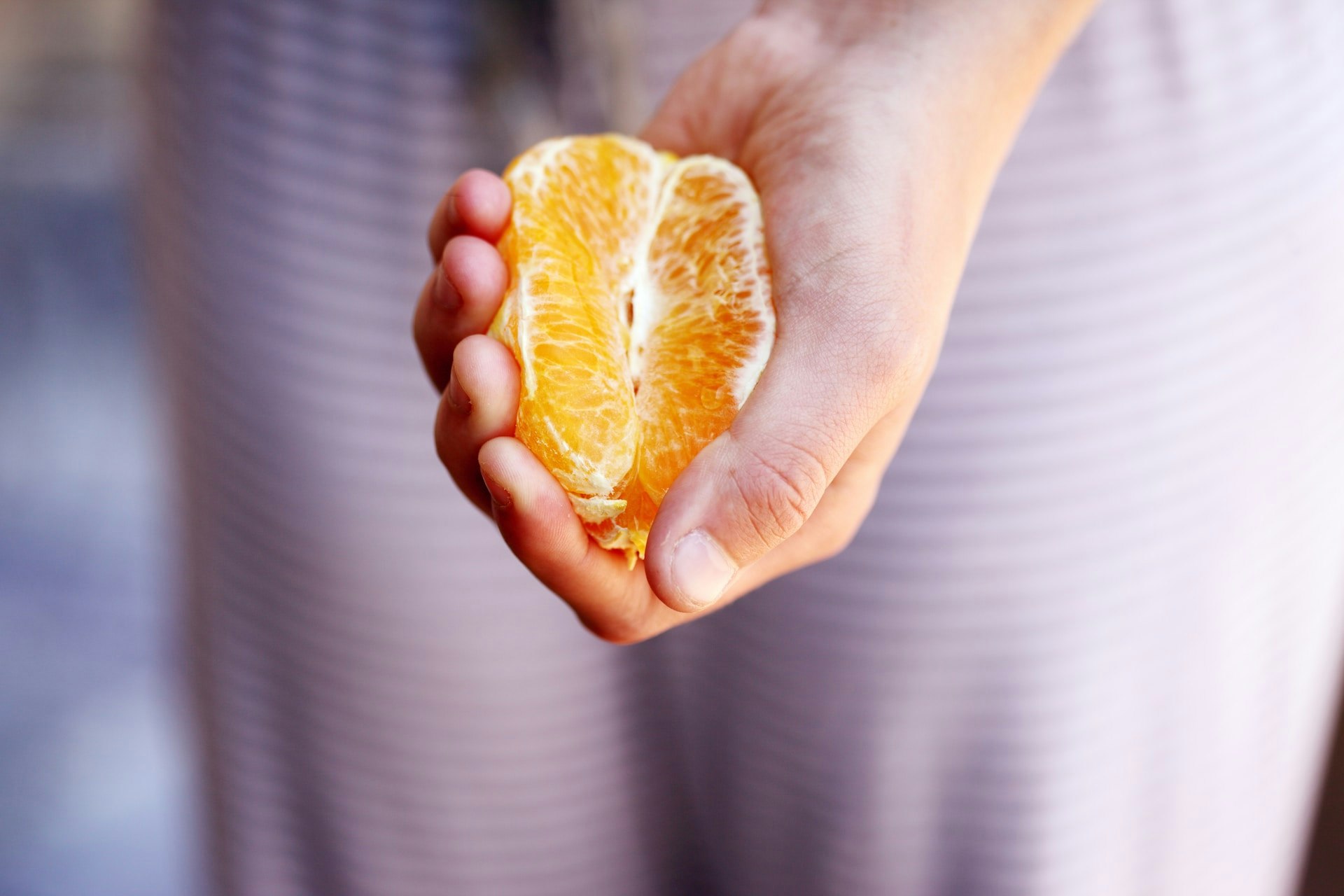
Does Orange Juice Have Fiber? How Much?
Fresh oranges have more fiber than orange juice, but orange juice still contains some fiber. A serving of freshly squeezed or cold pressed orange juice with pulp will contain between 0.5 and 1 gram of fiber, about 5% of your daily recommendation. Therefore, orange juice is not a great source of fiber. According to surveys, orange juice is the most popular fruit juice in the world. Every year, manufacturers make around 1.6 billion metric tons of it. Sadly though, commercial juicing takes the fiber out of the fruit leading to lower fiber overall. Instead of buying orange juice at the grocery store, you can also squeeze your own orange juice by hand or with an electric juicer, or better yet, opt for cold-pressed orange juice. Why is Fiber Important? Fiber helps promote overall health. It lowers your risk for heart disease, high cholesterol, diabetes, hemorrhoids, constipation, and diverticulosis, which is the most common gut disorder. There are two types of fiber, soluble and insoluble fiber, and we need a combination of both types to maintain digestive health. Soluble Fiber When combined with water, soluble fiber helps keep you full for longer by slowing down the emptying of your stomach. Insoluble Fiber By binding with water, insoluble fiber makes your stool easier to pass through your digestive tract, making it easier to pass. For the most health benefits, mix these two kinds of fiber together, with your total fiber intake. How Much Fiber is in Orange Juice? There may be differences in nutrition information depending on the manufacturer, orange variety, and process. Furthermore, fiber content varies among brands and types of orange juice. It's possible to get more fiber from some juice brands if they include pulp. Consider varieties that contain pulp if you want some fiber. An orange juice with pulp contains about 5% of the daily fiber requirement of soluble and insoluble fiber. A serving of freshly squeezed or cold pressed orange juice will contain between 0.5 and 1 gram of fiber. It may not seem like much, but it counts toward the Dietary Guidelines for Americans' (DGA) 25 to 34 grams of fiber per day recommendation. You'll want to eat other fiber-rich foods to hit this crucial daily requirement. Bottom Line To sum it up, orange juice isn't typically known as a fiber-rich drink, but it does contain some fiber. You won't find much fiber in store-bought orange juice. If you love orange juice in the morning and want to boost your fiber intake, cold-pressed orange juice with pulp is the way to go.

Does Orange Juice Have Caffeine? How Much?
There's no caffeine in orange juice, but it has multiple nutrients and flavonoids that have been shown to boost alertness, focus, and energy. As a bonus, orange juice is packed with vitamins and minerals that can help you stay healthy, boost your mood, and feel good. Neither oranges, apples, nor any other fruits naturally contain caffeine. Caffeine is a naturally occurring stimulant found primarily in the seeds, leaves, and fruits of certain plants, such as coffee beans, tea leaves, and cacao beans. Pure orange juice is packed with flavonoids like hesperidin and naringenin, which are plant compounds with a range of health benefits. Consuming foods rich in flavonoids, like orange juice, may improve certain cognitive functions, according to some studies. Can a Glass of Orange Juice in the Morning Improve Alertness? According to research from the University of Reading, a glass of fresh orange juice in the morning can improve alertness and concentration over the course of the day. This research is part of a series of studies conducted by the University of Reading investigating the effects of flavonoids on the brain. In the study, 24 healthy males aged 30-65 drank flavonoid-rich orange juice or a control drink on two separate days. Participants were randomly assigned each day to drink orange juice or a control drink. Researchers designed two drinks, an orange juice with flavonoids, and an orange flavored drink without flavonoids. There were no differences in taste, appearance, energy level, or sugar content between the two drinks. Cognitive testing was done before and after drinking, as well as two and six hours following consumption. A 240ml serving of orange juice significantly increased cognitive function and alertness for up to six hours. These tests also showed a decline after two and six hours of drinking the control drink. Following the control drink, alertness dropped by 6.4%, whereas after the orange juice, it dropped only by 0.5%. The Outcome of the Study Researchers said: “Put together, the results suggest eating or drinking flavonoid rich fruit could be a great, healthy morning tonic -helping to maintain alertness and concentration in the classroom or at work.” Flavonoids and cognitive function are still areas of active research, though. Flavonoids in orange juice may also vary depending on how the juice is processed and what type of oranges are used. In a Nutshell Orange juice is a flavonoid-rich food that can contribute to brain health, but the flavonoids in orange juice are not the same as caffeine, and orange juice alone doesn't necessarily boosts brainpower or reaction times. For optimal cognitive function, you need a well-rounded diet, regular exercise, enough sleep, and mental stimulation.
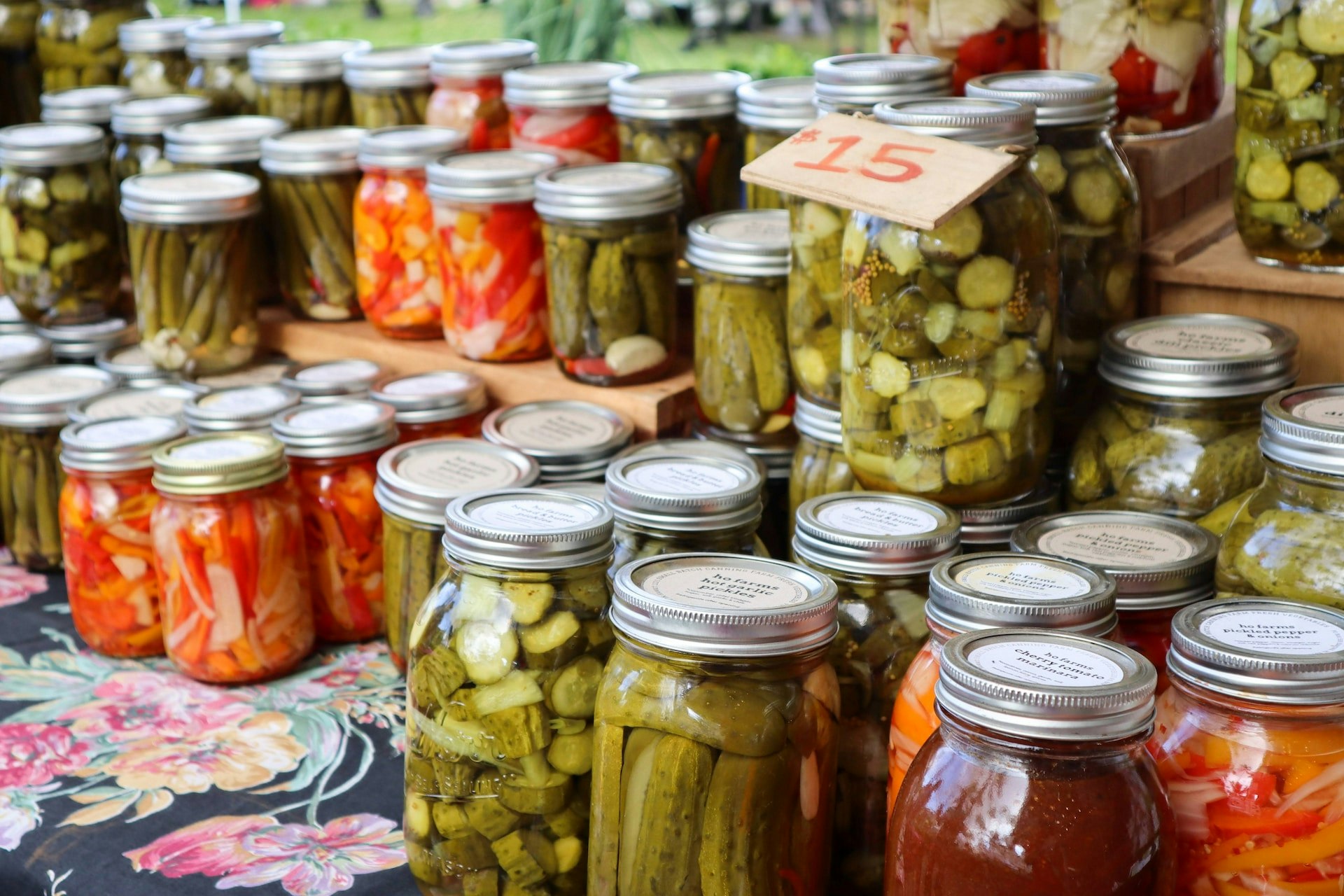
Does Pickle Juice Have Electrolytes? How Much?
Yes, pickle juice contains electrolytes, particularly sodium and potassium. Drinking pickle juice might sound awful, but there are many good reasons to drink it. As well as its ability to hydrate, it could help relieve muscle cramps, stabilize blood sugar levels, and promote gut health. There's a history of pickles going back 4,000 years to Mesopotamia. During the Mesopotamian period, cucumbers were preserved in an acidic brine, and they must have thought they tasted pretty good as the practice continues today. Over the centuries, pickles have been credited with everything from preserving beauty to strengthening soldiers. Nowadays, pickle juice is even included in some savory cocktail recipes. How Many Electrolytes are in Pickle Juice? Sodium and potassium are the two main nutrients in pickle juice. There can be big difference between brands and recipes when it comes to vitamins and minerals in pickle juice. This makes it hard to break down the nutrients in pickle juice accurately. You can also find small amounts of calcium and magnesium in pickle juice. Benefits of Drinking Pickle Juice In recent decades, pickle juice has become popular for counteracting muscle cramps. Scientists think the juice triggers a mouth reflex that signals nerves to stop cramping. The electrolytes in our bodies carry an electric charge and play a critical role in several bodily functions. Sodium and potassium are the most common electrolytes in pickle juice. Sodium: Fluid balance, nerve function, and muscle contractions are all regulated by sodium. Salt is one of the main sodium sources in pickle juice because it's made from pickled cucumbers. The sodium content depends on the brand or homemade pickle juice recipe. Potassium: Pickle juice also contains potassium. As well as aiding in fluid balance, it keeps the heart and muscles working well. Potassium levels in pickles can also vary, but cucumbers, which are the main ingredient, are generally high in potassium. Pickle Juice vs. Water After sweating from a workout, pickle juice helps restore the fluid balance in the body. Sipping plain water is great, but getting hydrated faster and staying hydrated is more effective with a drink containing sodium and potassium. You lose both of these electrolytes when you sweat, and pickle juice contains them both, typically in high quantities. How Much Pickle Juice Should You Drink? Don't overdo it with pickle juice. You should keep your sodium intake under 2,300 milligrams a day, and 3 ounces of pickle juice can give you as much as 900 mg of sodium, depending on the brand. Choose a vinegar-based pickle without preservatives, artificial additives, and yellow dye. Conclusion Pickle juice can serve as a natural electrolyte because it contains a lot of sodium and some potassium and magnesium. However, if you have high blood pressure or other conditions requiring sodium restriction, you should consider the sodium content of pickle juice before using it as an electrolyte source. Getting personalized advice on electrolyte intake and overall hydration is best done with a healthcare professional or registered dietitian.
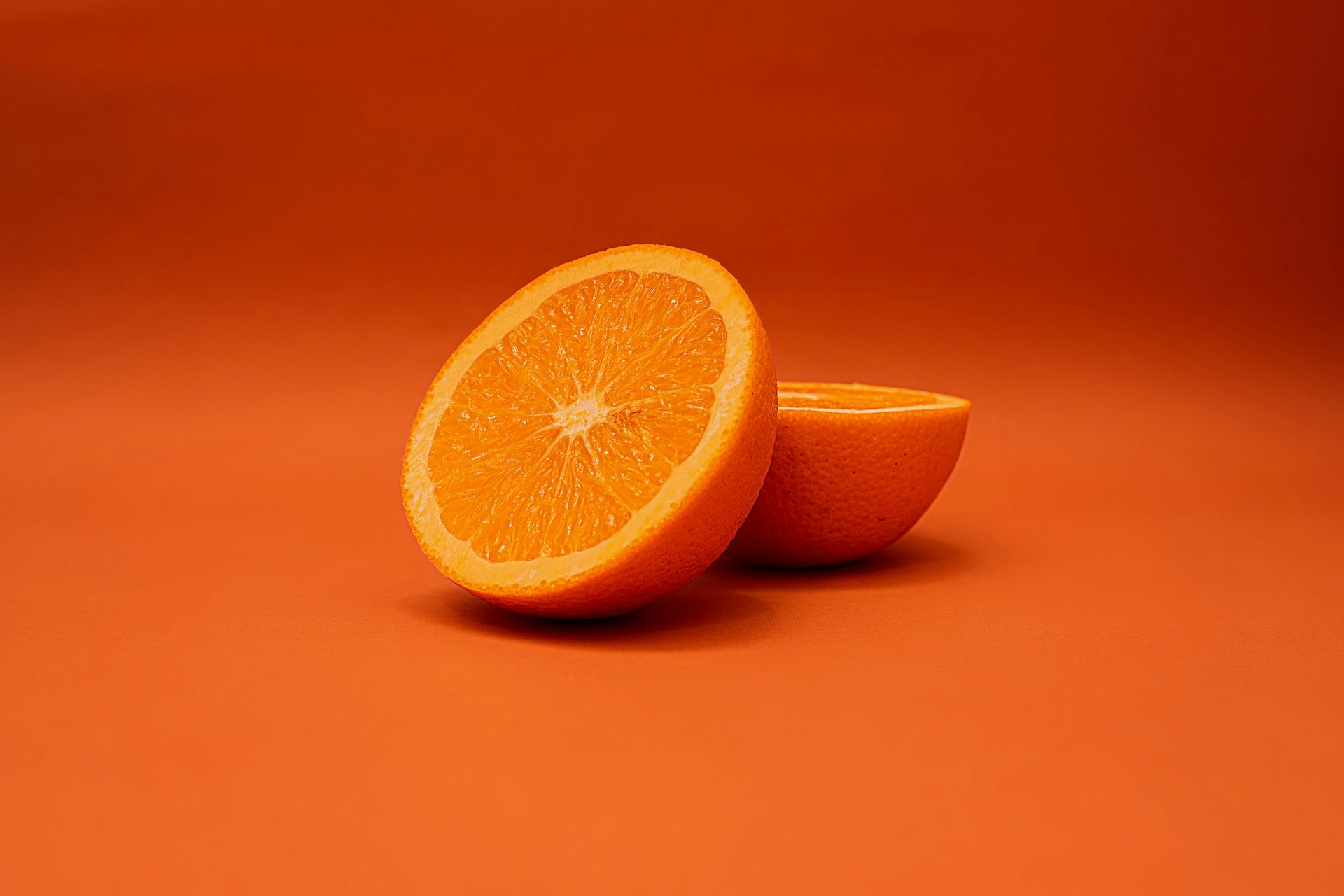
Does Orange Juice Have Vitamin C? How Much?
Orange juice is well-known for its high vitamin C content, with an 8oz cup containing approximately 124 milligrams of vitamin C. Vitamin C, also known as ascorbic acid, is an essential nutrient that plays a crucial role in various bodily functions. Vitamin C acts as an antioxidant, helping to protect cells from damage caused by harmful free radicals. Additionally, vitamin C is important for the synthesis of collagen, a protein that supports the structure and health of the skin, bones, and blood vessels. What Affects the Vitamin C Content of Oranges? According to nutrient analysis data from the U.S. Department of Agriculture (USDA), the vitamin C content of one medium orange is approximately 68 milligrams. However, the specific amount of vitamin C in orange juice can vary depending on several factors. Firstly, the variety of orange used can affect the vitamin C content. For example, some orange varieties, such as Valencia oranges, tend to have higher vitamin C levels compared to others. Additionally, the ripeness of the oranges can impact the vitamin C content, with fully ripened oranges generally having higher levels. How Much Vitamin C in Orange Juice? As notes, on average, an 8-ounce cup (240 ml) of orange juice provides approximately 124 milligrams of vitamin C. This amount meets or exceeds the recommended daily intake of vitamin C for most adults, which is around 75–90 milligrams per day. Interestingly, a ¾-cup serving of orange juice actually contains a little more vitamin C than the actual fruit—it has a concentrated dose of around 93 milligrams of vitamin C. However, the whole fruit delivers more fiber, especially if you keep the white, spongy pith intact. Does the Body Store Extra Vitamin C? It's worth noting that vitamin C is a water-soluble vitamin, meaning that excess amounts are usually excreted by the body rather than stored. Consuming orange juice as part of a balanced diet can help ensure an adequate intake of vitamin C. Vitamin C in Pasteurized vs. Cold Pressed Orange Juice It's important to remember that vitamin C is a sensitive nutrient. The processing methods employed during orange juice production can affect the vitamin C content, and can even destroy it. Prolonged exposure to heat, air, and light can degrade vitamin C. Therefore, it is recommended to consume orange juice fresh and store it properly in a cool and dark place. Fresh-squeezed or cold pressed orange juice typically retains more of its vitamin C content compared to commercially processed juices that have undergone pasteurization and storage. Some manufacturers may fortify orange juice with additional vitamin C to enhance its nutritional value. Drinking cold-pressed orange juice is the way to go for the best taste and nutrient content. Conclusion In conclusion, orange juice is an excellent source of vitamin C and other nutrients. It contains high levels of this essential nutrient, which is essential for a healthy body and immune system. Orange juice's vitamin C content can vary depending on factors like the type of orange used, ripeness, and juicing process used, but overall, it is an excellent source of this critical nutrient.

Does Pineapple Juice Help with Swelling?
For many years, Central and South American cultures have used pineapple to help with indigestion and reduce swelling. Bromelain, the enzyme found in pineapple juice, has been shown to reduce swelling and inflammation. Pineapple juice is also abundant in a selection of minerals and vitamins. In particular, it has a plentiful supply of manganese, copper, vitamin B6, and vitamin C – all of which are essential for the body to work properly. How Does Pineapple Juice Help With Swelling? Originally discovered in the late 19th century, bromelain is a type of enzyme found in pineapple juice. It is touted for its potential to reduce inflammation. This compound is derived from the stem and juice of the pineapple plant. Studies of bromelain have explored its capacity to diminish swelling and inflammation in a variety of ailments, such as sinusitis, rheumatoid arthritis, and sports injuries. Bromelain may be able to reduce bruising, healing time, and pain after surgical interventions and physical traumas. It has also been hypothesized that it could help combat the inflammation associated with either rheumatoid or osteoarthritis. To reduce inflammation from tendinitis, sprains, strains, and other muscle injuries, bromelain is frequently employed. Research involving those having dental, nasal, and foot surgeries demonstrated its effectiveness in diminishing inflammation. In Europe, bromelain is widely utilized to treat sinus and nasal congestion resulting from ear, nose, and throat surgical procedures or trauma. Potential Side Effects It's important to note, however, that pineapple juice or bromelain can vary in their effectiveness in reducing swelling. Among them are the underlying cause and severity of the swelling, the individual's response, and the concentration of bromelain in the juice. There are some side effects associated with drinking a lot of pineapple juice, including mouth irritation, rashes, nausea, bloating, and diarrhea. Pineapple juice also contains a high level of sugar and acid, which can damage the enamel and eventually result in decay. Furthermore, pineapple juice can cause hormonal disturbances and heartburn when consumed in large quantities. To maintain good health, dieticians suggest drinking 8 ounces of pineapple juice daily. Due to it's natural sweetness, pineapple juice makes for some delicious and summery juice blends, and can be an incredible base for green juices. Conclusion It is clear that pineapple juice offers some health benefits, one of which is reducing swelling, but it should not be used instead of medical advice or treatment. A healthcare professional should be consulted if swelling is significant or persistent. An appropriate treatment option can be recommended if the patient's swelling is caused by an underlying condition.

Does Orange Juice Help with a Cold?
Due to the high vitamin C content in orange juice, it's often recommended as a home remedy. But is that just a myth? Here’s the truth – drinking orange juice alone will not cure a cold. However, it can help with prevention by supporting your immune system. While having a strong immune system can help reduce the severity of cold symptoms, OJ does not make you immune to catching a cold, nor will it cure it immediately. How does Orange Juice Help a Cold? Make no mistake, orange juice has its benefits, but it cannot completely cure colds. Consuming the recommended daily amount of vitamin C through a balanced diet can help shorten the duration of colds and make symptoms less severe. Drinking orange juice, especially cold-pressed orange juice, can certainly help in keeping your body hydrated and supply vital nutrients, such as vitamin C, which can be beneficial for your immune system during a cold. However, it's crucial to understand that relying solely on vitamin C for treating colds is not an absolute solution. What Does the Research Show? The effectiveness of vitamin C in treating colds is still a debated topic among researchers and may vary from person to person. It's widely accepted that vitamin C is essential in supporting a healthy immune system. The effectiveness of orange juice in boosting the body's defenses, however, remains uncertain. The reason behind this uncertainty is that most of the research on vitamin C is based on supplements rather than pure orange juice. Although there are varying opinions, most experts agree that consuming vitamin C after the onset of cold symptoms won't make much of a difference. What is the Daily Vitamin C Requirement? It's important to note that excessive intake of nutrients can be harmful rather than beneficial. In the case of vitamin C, consuming more than 1,000 milligrams per day may result in excess excretion through urine. Therefore, starting your day with an excessive amount of orange juice and vitamin C tablets won't be effective and may only lead to frequent bathroom trips and a sugar rush. Consuming a moderate amount of orange juice, 8 oz a day, is a better method for supporting your immune system without excess sugar and vitamin C. Even better, you can make orange juice blends to reduce the overall sugar intake. Bottom Line Orange juice is beneficial as part of a healthy diet, but it’s no miracle cure for a cold. It's important to seek guidance from a healthcare expert if you're experiencing a cold or any other ailment. This will aid in the correct identification of your condition and the provision of suitable treatment. Additionally, a healthcare professional can offer personalized recommendations on how to manage your symptoms and expedite your recovery.

Does Orange Juice Have Electrolytes? How Much?
Orange Juice contains electrolytes like potassium and magnesium, which help maintain fluid balance. Recent research suggests that 100% orange juice is a better choice for hydration than many other beverages. A clinical study found that drinking OJ after exercise is just as hydrating as water or sports drinks, making it a healthy option for post-workout recovery. For older adults, experts recommend consuming 100% fruit juice to maintain fluid intake and prevent dehydration while meeting food group recommendations. Why is Hydration Important? 100% orange juice is mostly water, accounting for almost 90% of its content. Water is essential for your well-being as it constitutes the major part of all cells. It helps in the flow of fluids like oxygenated blood inside the cells, and plays a vital role in numerous cellular processes. Having enough water is crucial for the body to maintain its optimal function, including controlling body temperature, managing blood pressure, and carrying nutrients throughout the body. Sufficient hydration can also enhance the appearance of healthy skin by augmenting skin elasticity. What are Electrolytes? Electrolytes are essential nutrients that include potassium, sodium, magnesium, and calcium. These nutrients are charged with electricity in fluids and are responsible for transmitting signals in nerves and contracting muscles. They play a vital role in the proper functioning of the human body and are indispensable for the heart's beating. Electrolytes are lost during fluid loss, especially through sweating. As water does not contain electrolytes, it is crucial to consume foods containing these nutrients to replace the lost electrolytes. Drinking fluids such as 100% orange juice that contain water and electrolytes can support hydration.
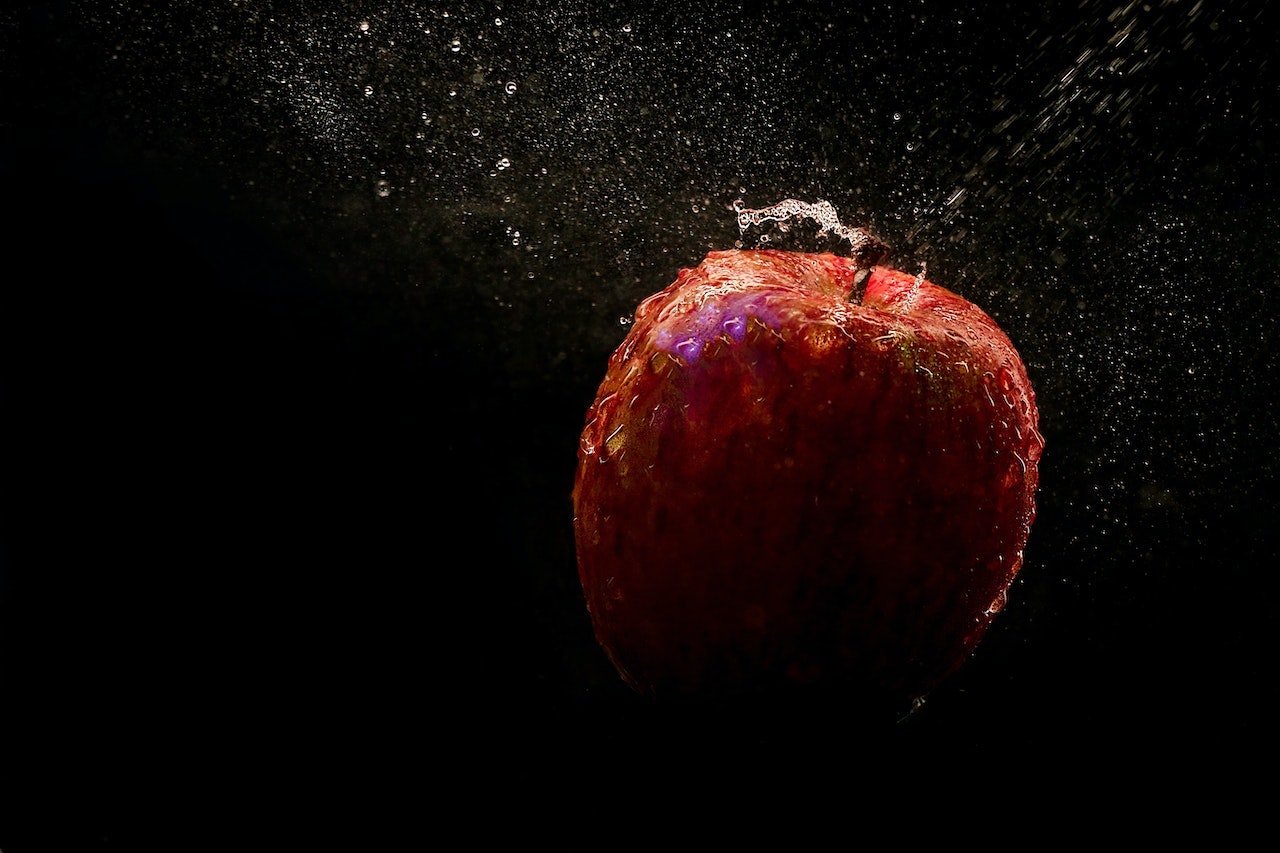
Does Apple Juice Have Electrolytes? How Much?

Does Apple Juice Hydrate You?
Summer is just around the corner, and it's crucial to stay hydrated. You may be wondering, is apple juice a suitable option to quench your thirst? The short answer is yes, apple juice is full of vitamins, minerals and electrolytes that hydrate you effectively. This article dives into how drinking apple juice is an effective way to stay hydrated, and why hydration is so important, especially in the heat Does Apple Juice Hydrate You? Let's explore whether apple juice can truly hydrate the body. Cold-pressed apple juice in particular can serve as a great source of hydration. This type of juice extraction involves using a hydraulic press to extract juice from fruits and vegetables, instead of traditional methods that may use heat or centrifugal force. By using cold-pressing, more of the vitamins and nutrients are preserved in the juice, which leads to better hydration in the body. Why is it Important to Stay Hydrated? Drinking apple juice is a great way to stay hydrated as it has a high water content. Water is crucial for the body to function properly, and the human body is composed of about 60% water. Staying hydrated helps with: Maintaining a healthy body weight Flushing toxins out of the body Producing essential bodily fluids like saliva Maintaining regular bowel movements Optimal muscle performance Clear and youthful-looking skin Regulating body temperature Lubricating joints Transporting nutrients throughout the body On the other hand, not drinking enough water can lead to dehydration, causing symptoms such as fatigue, headache, weakened immunity, and dry skin. Can Apple Juice Help Maintain Hydration? Consuming apple juice can restore the fluids and minerals that your body loses while exercising or sweating. Besides it's naturally hydrating water content, apple juice also contains natural sugars, vitamins, and electrolytes including potassium, sodium, magnesium, and calcium that can boost energy levels and improve overall health. However, compared to coconut water and sports drinks intended to rehydrate you during or after exercise, apple juice is not as effective. It is important to keep in mind that store-bought apple juice n particular has added sugars that can be harmful to your health if consumed in excess. Although there are several health benefits of apple juice, excessive consumption of sugary drinks can be harmful. Cold-pressed apple juice will contain less sugar on average, but it can be a good idea to balance it with other vegetable juices to lower the sugar content while adding more vitamins and minerals. It is advised to consume apple juice in moderation and combine it with other sources of hydration such as water, herbal teas, or fresh fruit. The recommended daily intake of apple juice is approximately one cup or eight ounces of juice. In a Nutshell In general, apple juice can serve as a useful method for rehydrating the body. Electrolytes present in the juice aid in restoring those lost while sweating, while its sugar content can provide an energy boost. It is essential to remember, however, that excessive consumption of apple juice can result in an unhealthy surge in blood sugar levels. In moderation, though, cold-pressed apple juice can be a beneficial means of rehydration

Can Orange Juice Help a Sore Throat?
Orange juice can play a significant role in helping maintain your immune system, but it's more of a preventive measure rather than a cure for a sore throat.
